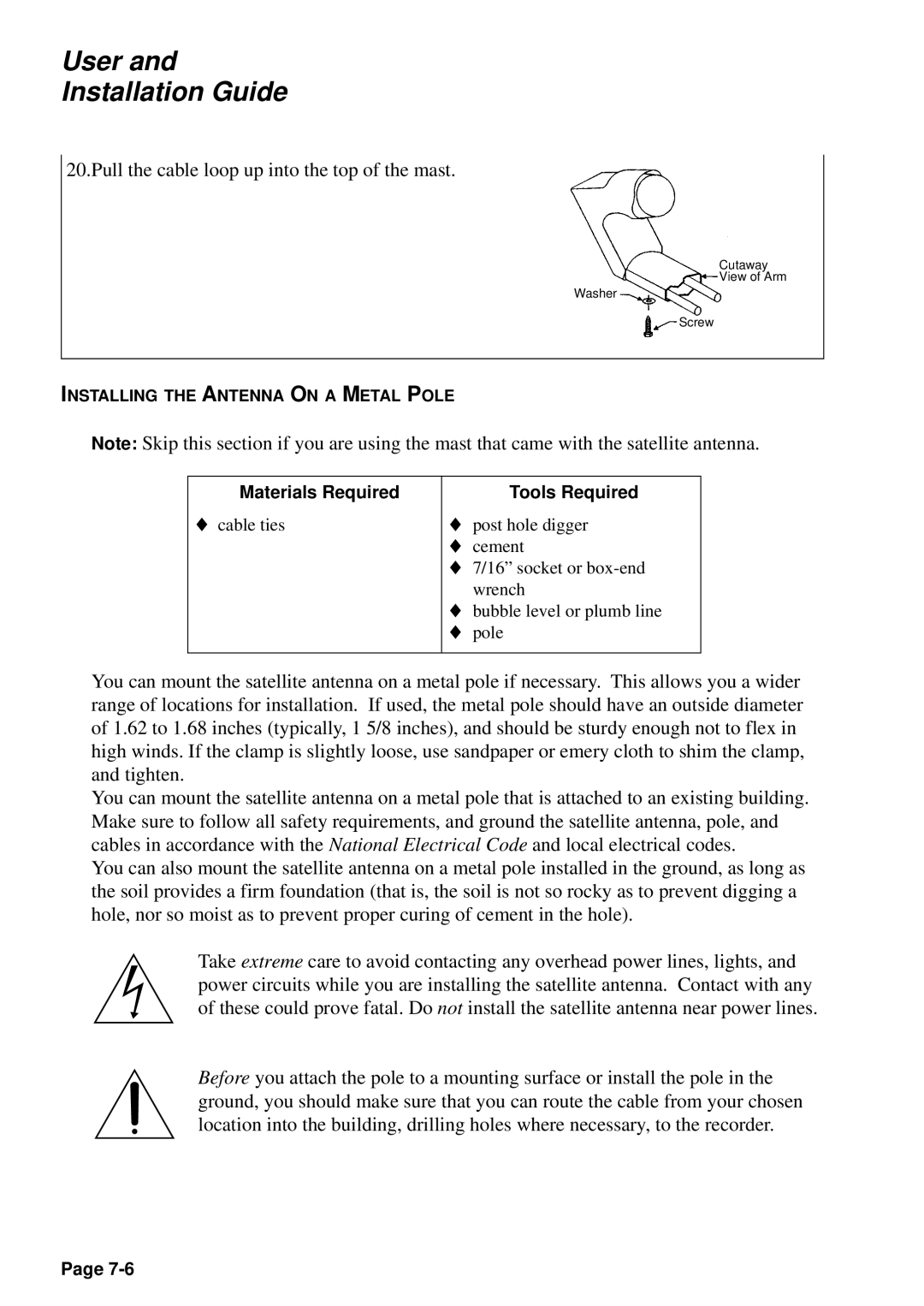
User and
Installation Guide
20.Pull the cable loop up into the top of the mast.
Cutaway
View of Arm
Washer
Screw
INSTALLING THE ANTENNA ON A METAL POLE
Note: Skip this section if you are using the mast that came with the satellite antenna.
Materials Required
♦cable ties
Tools Required
♦post hole digger
♦cement
♦7/16” socket or
♦bubble level or plumb line
♦pole
You can mount the satellite antenna on a metal pole if necessary. This allows you a wider range of locations for installation. If used, the metal pole should have an outside diameter of 1.62 to 1.68 inches (typically, 1 5/8 inches), and should be sturdy enough not to flex in high winds. If the clamp is slightly loose, use sandpaper or emery cloth to shim the clamp, and tighten.
You can mount the satellite antenna on a metal pole that is attached to an existing building. Make sure to follow all safety requirements, and ground the satellite antenna, pole, and cables in accordance with the National Electrical Code and local electrical codes.
You can also mount the satellite antenna on a metal pole installed in the ground, as long as the soil provides a firm foundation (that is, the soil is not so rocky as to prevent digging a hole, nor so moist as to prevent proper curing of cement in the hole).
Take extreme care to avoid contacting any overhead power lines, lights, and power circuits while you are installing the satellite antenna. Contact with any of these could prove fatal. Do not install the satellite antenna near power lines.
Before you attach the pole to a mounting surface or install the pole in the ground, you should make sure that you can route the cable from your chosen location into the building, drilling holes where necessary, to the recorder.
Page
